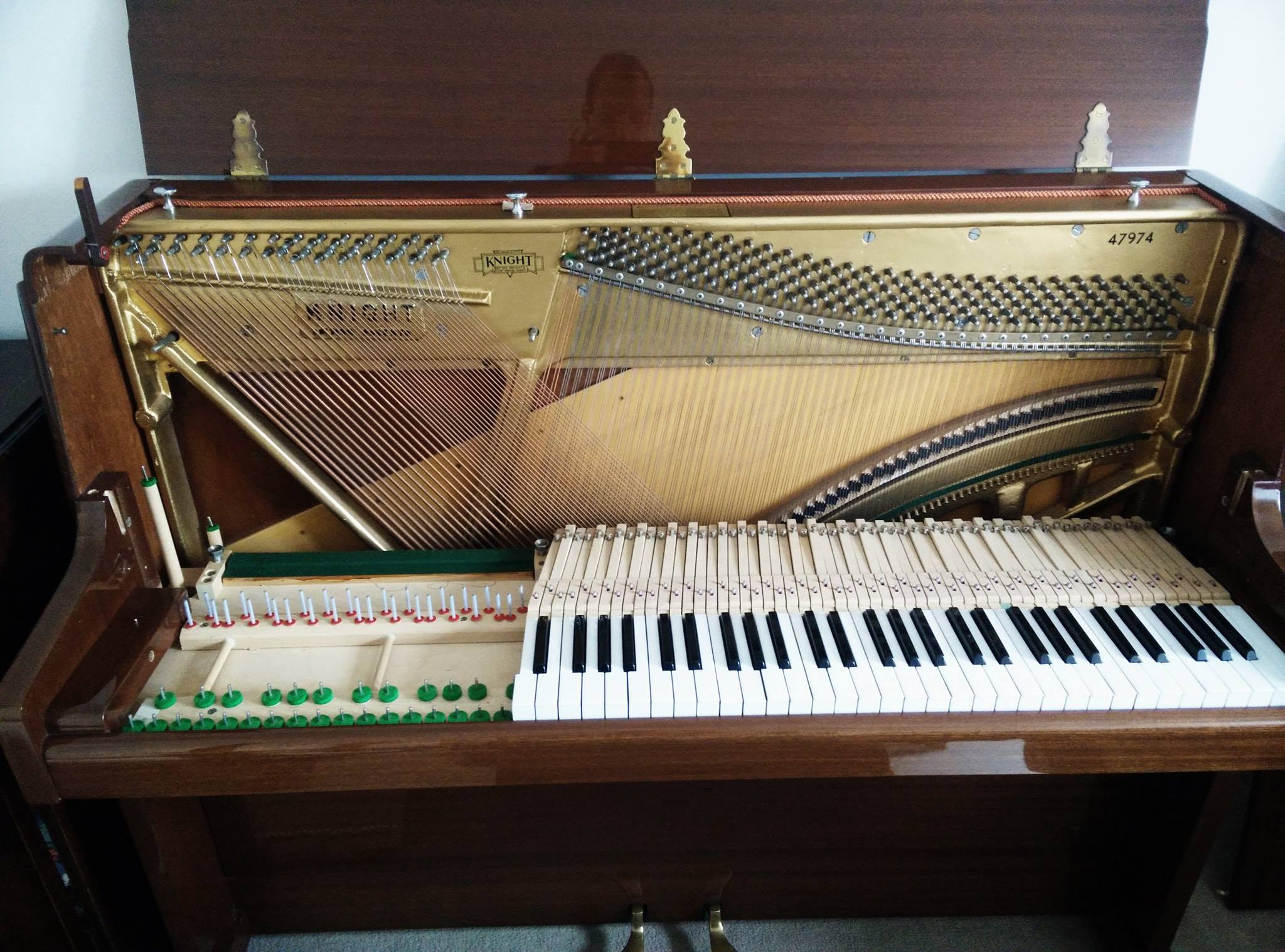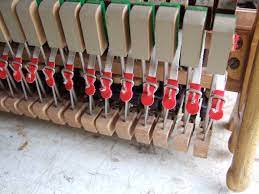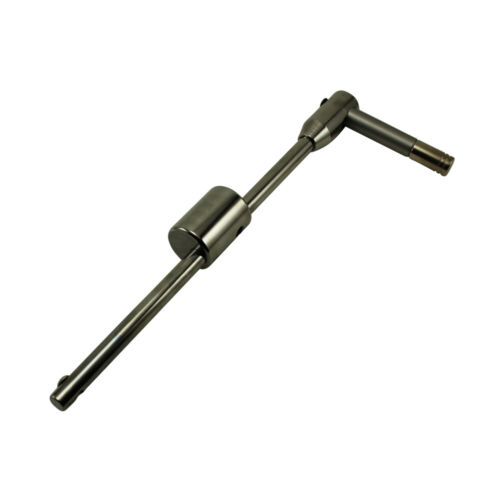It’s looking like a very hectic month for the Leeds piano tuner, be he’s still open to new clients throughout the month and into May. If you could be patient and understanding of his busy schedule, he will book you in as soon as possible – please don’t forget to check the availability page of this website for a regularly updated list of piano tuning availability. A well-earned holiday has been booked in late April which further complicates things – but he will always aim to book you in within a week or two of your enquiry.
Category Archives: Piano Tuner Leeds
Equal Temperament vs Just Intonation vs Well-Temperament
Here’s an interesting video to show how different the modern tuning system of Equal Temperament sounds in comparison to earlier just and well-tempered tunings (a reminder that what we call ‘in tune’ today is vastly different to what previous generations would’ve considered good tuning):
Piano TEMPERAMENT comparison. – YouTube
Of the other tuning systems I’ve tried while tuning pianos, Thomas Young temperament and Werckmeister III were my favourites for the dissonance they added to certain chords (which better conveys the emotion of the music), and the variation between key signatures (something sadly lost in modern tuning). My go-to “Factory Default”, safe piano tuning system as a piano tuner Leeds is Equal Temperament at (preferably) A440 or, if that’s not possible, A435, A432 or A415. This is what the customer’s ear expects and it is guaranteed to be satisfactory. For personal taste, my acoustic piano at home is currently tuned to Thomas Young temperament, as I play a lot classical and like the home keys to sound more pure and for dissonant chords in Chopin and Bach to sound closer to the composers intention.
Regulation/Maintenance task – Cleaning & Lubricating the Key Pins
A relatively quick and easy way that a piano tuner can improve the piano’s performance is to ensure the key pins are as clean and slippery as possible. If all the key pins are polished, smooth and slippery the piano keys will glide as effectively as possible which greatly improves the feel and playability of the piano.

Before lubricating the bushings, key pins must to be cleaned of any rust or grime. A bit of surface rust is no big deal – some steel wool can clean that off quite effectively. If they’re heavily rusted or showing signs of corrosion then they need to be replaced – the Leeds piano tuner will give you a quote before continuing his work.
One the Leeds piano tuner is satisfied with the condition of every key pin, then the key pins and the key bushings will be lubricated. Every piano tuner has their preference on what lubricant to apply (Protek CLP, PTFE or Teflon), but the Leeds piano tuner prefers protek for its durable and long lasting nature. In some extreme instances, Protek or PTFE in liquid form on the key pins and teflon powder on every key bushing has proven to be the best combination, if the piano had many sticking keys (a separate though related issue) or squeaks beforehand.
If you have had a piano for many years and this has never been performed by a Leeds piano tuner, your piano could well benefit from this service. Judging by the condition of many older pianos, the key pins have been neglected for the pianos whole life which can be an unfortunate sight to behold.
Bridle tape replacement
One of the common repair jobs performed on an aging piano during the piano tuning visit: bridle tape replacement. These tapes keep the hammer bridled to the action after a note is played and keeps the wippen from falling down if the action is taken out of the piano for repairs.

On an older piano in poor condition, its very common for a large number of bridle tapes to have broken (usually the tips have disintegrated over time). This can cause minor problems with key repetition and on some pianos the jack can get jammed behind the hammer butt (depends on the size of the parts or if other issues have occurred such as springs losing tension). While this issue can be overlooked by many piano tuner technicians (as many pianos play reasonably well with missing bridle tapes), replacing these tapes is an important step towards getting the piano performing at its best. The Leeds piano tuner has many spares in his piano tuner case.
Happy New Year to my Leeds and West Yorkshire piano tuning clients!
Happy 2023 everyone. 2022 was the most financially successful year on record for me by a wide margin – lots of piano tuning, and new friends and contacts made with various Leeds and Bradford theaters, recording studios, schools and churches – plenty of freshly tuned pianos out there today. It was a delight. Don’t let anyone tell you that digital pianos have superseded acoustic pianos – lots of Luddites and purists out there like myself who can appreciate the sound and feel of a real piano.
On that note, please don’t forget to have your acoustic piano tuned regularly – ideally twice a year. It’s best for the piano tuning stability, its tone and its longevity.
- – Richard Lidster, Piano Tuner Leeds.
Piano Regulation (preliminary steps)
Piano Regulation – simply put – refers to a series of adjustments made to the piano’s mechanism to ensure that the entire piano performs optimally (i.e. that it plays well and all keys feel smooth and even in weight/depth of touch).
For a first time Leeds or West Yorkshire piano tuning client, I’m often performing minor repairs and regulation on the action as part of the piano tuning process (often simply making adjustments to compensate for wear and tear, or even replacing the odd worn action part), all within a two hour window for my standard rate. A full regulation of the entire action and keyboard is a longer process. This can take upwards of 6 hours and my fee for this begins at £400. Its commonly undertaken as part of a larger overhaul of the action or may take place as part of a restoration – though not necessarily (on a modern upright that is otherwise in good condition but badly regulated, a thorough regulation procedure can improve performance dramatically).
There are many preliminary steps the piano tuner & technician must take before regulation. The first is to give the piano a thorough cleaning; making sure all dust, dirt and foreign objects have been removed will ensure optimal functioning of the keys and the action. A damp cloth, a vacuum, a small brush and a bowl of clean warm water can be all the tools needed for a deep clean of the piano (ensuring the back frame, soundboard, bridge assembly, the keyboard and action must all be free from excessive dirt and dust which hinder performance and play-ability).
Once the piano is clean the Leeds piano tuner will check over the keyboard. The condition of the key pins must be free of grease and rust, and all punchings in the front and balance rail must be inspected for damage. The key frame screws should be tightened a long with the screws in the action bracket.
Once the keyboard is clean and has been thoroughly looked over, the Leeds piano tuner will then turn his attention to the mechanism, checking that all the action parts are in good condition (i.e. the center pins have the right amount of friction and are secure in the flanges or the jack, that no wooden parts are broken or missing and so on, so forth). All action screws should be tight and the hammers should be properly aligned.
The strings will next be checked over – the three string unisons must be propely aligned, the tightness of the pressure bar checked, the strings should be properly seated at the bridge and hitch pins.
Finally, if the hammers are too worn, they can be roughly reshaped to improve tone before regulation.
These preliminary steps are often be beneficial with or without full regulation. Unfortunately many pianos have rarely been cleaned and a thorough cleaning can sometimes be enough to make sure the piano plays well. Many of the rattles or looseness of touch (or jamming keys) can be down to loose screws in the hammer or whippen flange. Options for more regulation are usually discussed with a piano tuning client on first meeting, and will depend on the current state of the piano (how well regulated it is) and what the pianist is willing to invest in their beloved instrument.
Newest acquisition for the Leeds Piano Tuner

There comes a time when every Leeds piano tuner needs to upgrade their piano tuning hammer. Well, upgrade might be the wrong word because the Fujan piano tuning hammer I also use is extremely high quality. I’ve been introducing this nifty device into my piano tuning starting last week – it’s a Keyes impact tuning hammer. Because it uses a weight to move and set the tuning pins it has two great benefits:
- It moves the wrest pin (or tuning pin) deeper in the wrest plank, setting the pin much better than anyone could manage with a regular piano tuning hammer.
- It uses fewer muscles in the body putting much less strain on the piano tuner (I don’t know anyone who hasn’t experienced some degree of shoulder pain doing this job!)
I’ve already been extremely impressed with the results, but for the sake of speed I currently use it for about 75% of my piano tunings (for the remaining 25% I use my trusty Fujan piano tuning hammer which has been my main hammer since 2017). If I was learning piano tuning today I would much prefer to start with an impact tuning hammer (from what I’ve heard, in colleges in the United States this is already the case).
Change in opening hours for the Leeds Piano Tuner
I have started offering Sunday bookings for anyone who is busy with work during the week. Monday to Friday are my preferred work days but I can flexible and willing to work around your schedule.
- Richard Lidster, Leeds Piano Tuner
No holidays for me this year
I’ll be piano tuning in Leeds, Bradford, Wakefield, Harrogate, and York all summer. I no longer work weekends except under rare circumstances (I don’t want to end up an automaton), but week days I’m always piano tuning from 9 AM to 9 PM.
My unique selling point; Low fees, no hidden charges
In these dark days, it seems that costs are rising for everything – except for my piano tuning services. My reasoning is that if I were to put my Leeds piano tuning rates up and lost 20% of my clientele, then I wouldn’t have gained anything and I could potentially upset a lot of my regulars.
I’m also transparent about my fees on this website – I can’t stand hidden charges when I book my car in for a service, so I wouldn’t want to inflict them on anyone else in regard to piano tuning.
Now don’t think a good deal means you won’t receive an exemplary piano tuning service. I now have 11 years experience as a piano tuner in Leeds and beyond under my belt (how time flies!). I’ve been diagnosed (twice) as having pitch perfect hearing (being able to hear the difference of less an 1 cent flat or sharp, or 1/100th of a semitone). I also think that as a musician (grade 8 guitar and a trained vocalist, well known in the Leeds and Yorkshire music scene) I’m more inclined to give your piano the extra diligence that it requires – to pick up on the subtle things that make playing music more enjoyable.